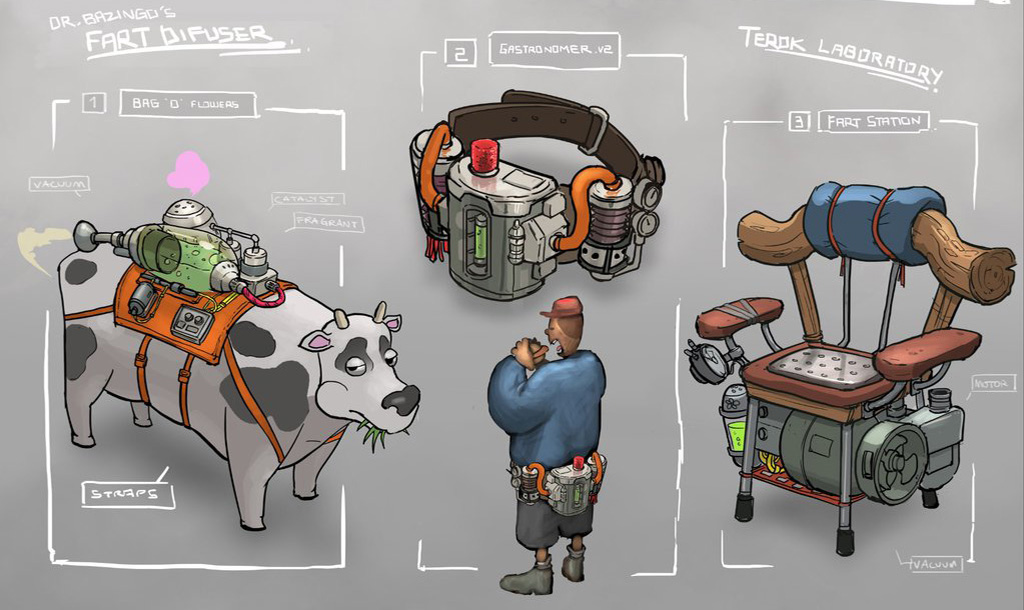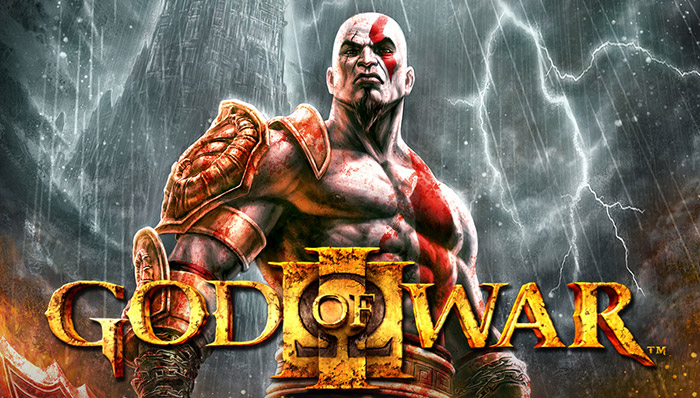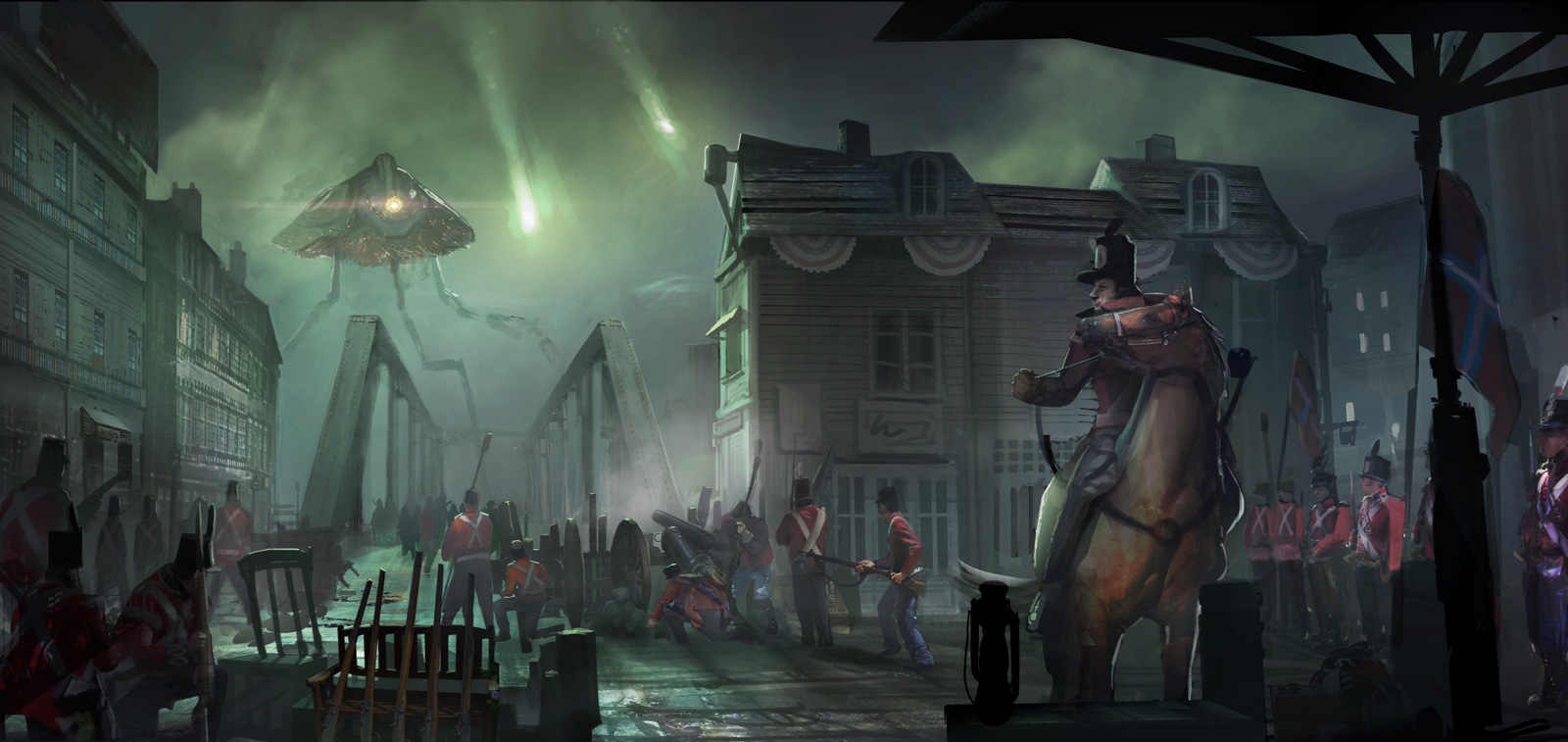The high concept is a concept (no pun intended) that is very relevant to people working or studying in creative fields. In this article, we’ll be tackling this idea from the perspective of games design, though it is a relevant concept for any industry where you are trying to create a product or service that appeals to people.
Let’s start with a simple definition of what a high concept is: it is the first thing you tell someone when they ask you what your game is about. Here are some traits a high concept should have:
- It should preferrably be contained in one sentence. Not a strict rule, but you should stick to it as far as you can.
- It should be interesting. How do you gauge interesting? Here’s a consideration: does your high concept make people want to ask you more about your game?
- It should descriptive but general, so that it creates interesting imagery in people’s minds. This compels people to ask follow-up questions about your game. This goes hand in hand with (2).
I want to emphasise on the idea of compelling people to ask more about your game, because it’s very important. Interested people ask more questions, but asking more questions also makes people more interested! A person asking questions is a person putting in effort, and a person putting in effort is a person becoming more invested. Think of the last game you played that you really liked and chances are, you really liked the game not because of the gameplay, mechanics, story, etc. but because you spent a lot of effort to know these things deeply (or you just wasted used a lot of effort farming for something).
Why your high concept should be good

1. It’s a quick way to make your game interesting to a publisher.
Emphasis on quick. Publishers (and most people with lots of monetary power, really) aren’t interested in your detailed 20-page breakdown of the game. They want to know what your game is about. Communicating this in a sharp and concise manner is a skill, not just in games design, but in all areas of life. Focus on mentioning only meaningful things and make sure every sentence serves a purpose. Remove everything else.
2. It’s a quick way to make your game interesting to new players.
So this is related to (2). Like publishers, most people aren’t really interested in your detailed breakdown. They probably aren’t even interested in your game, so you can see why a good high concept is so important. A good game is always one that has been thoroughly playtested, and having a good high concept at the start really helps you make sure the game turns out good, as it helps you get more willing playtesters.
3. It keeps you focused on the end product.
Designing a game is hard work, once you really get down to it. Formulating game mechanics require a ridiculous amount of attention to detail, which in turn requires a great deal of focus. In your focus on developing game mechanics, it is not uncommon that you lose sight of what you initially wanted the final product to be. Having a great high concept then can serve as a reminder for you to stay on target, so that the game manifests as what you want it to be.
In short, having a great high concept statement is having a concise sentence (or, in rare cases, several) that captures the essence of the game for yourself and makes others want to know more about your game.
Article continues after the advertisement:
A good example, and a bad one

Let’s use God of War as an example. Here’s an example of a not-so-good high concept statement for that game.
An action-adventure hack-and-slash with real-time (and sometimes) interactive cinematic sequences, backed with great graphics.
Does this describe a lot of the game? To a programmer or game designer, yes. It gives you a glimpse of what makes the game work. But it doesn’t communicate the essence of the game—a sentence that does so looks like this:
Step into the shoes of a spartan demigod and embark on a violent, visceral journey through various locales in ancient Greece to encounter and kill the mythical Greek gods.
Does it sound more like your experience of playing the game? Notice also that I hardly mentioned anything about genre or game mechanics. These things are abstract concepts and it doesn’t help people who don’t already know about your game build understanding. This is not mentioning the fact that some people don’t even know what a “genre” is ;)
Conclusion
In short, a good high concept statement can be very beneficial to people in creative fields because it helps encapsulate a vision into a simple sentence. This helps creators get their idea across to people quickly, provided the high concept is short, interesting and descriptive (in a general sense). It also keeps you focused on where you want to go with your work. Well-written high concept statements generally appeal to the imagination of your audience and do not contain specific details (which tend to be bland).
Special thanks to Melcolm Lek, whose art was used in this article. If you like his art, get in touch with him at melcolmlek@gmail.com.
Article continues after the advertisement:
